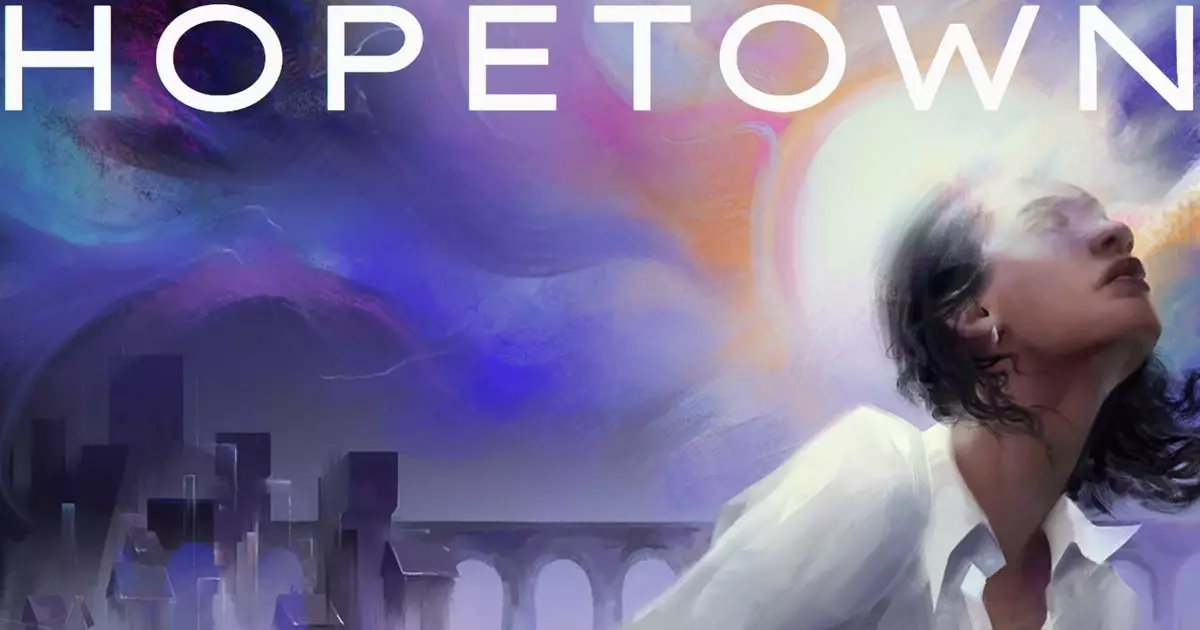The gaming world has always been ripe for innovation, and Hopetown, Longdue Games’ upcoming role-playing game, appears poised to challenge traditional narratives and expectations within the genre. Positioned as a “spiritual successor” to the critically acclaimed Disco Elysium, Hopetown draws on complex themes of psychology and philosophy, offering a chance to delve deep into the human experience while navigating the intricacies of a richly crafted world. The fervor surrounding its release is palpable, but does this game truly possess the depth to match the masterpieces it aspires to emulate?
Recent promotional materials have unveiled a tantalizing first glimpse of Hopetown’s gameplay, showcasing a vibrant art style that potentially rivals high-concept works. The deliberate choice of a purple and yellow palette alongside a painterly aesthetic sparks imagination, suggesting that the visual narrative will be as compelling as the thematic elements. However, one must wonder—can stunning visuals alone secure a title’s success in the current landscape dominated by storytelling nuances and emotional depth?
The Script: A Double-Edged Sword
While Hopetown’s aesthetics command immediate attention, the dialogue showcased may serve to raise eyebrows rather than elevate the narrative. The initial lines from the protagonist introduce a tone that some may view as brazen, even if it’s meant to encapsulate a chaotic character. Expressions like “I don’t shit in my own drinking water” underline a tendency to shock rather than provoke thoughtful engagement. In a gaming medium where writing can either define or detract from the experience, there’s a risk that employing provocateur language might alienate players rather than intrigue them.
Indeed, the potential for character development seems to hinge on clichés reminiscent of earlier works. Dialogue choices such as “Noblesse N’oblige” tantalize with their promise of depth, yet they quickly veer into absurdity with quips that seem designed more for shock value than substance. The satire of responses like “Yeah, feed the masses! So let it be done. EAT UP, SKY RATS!” risks descending into mere farce rather than an incisive commentary on society. While humor can be an essential vehicle for tackling profound ideas, the execution here lands on uneven ground.
Dissecting Aspirations and Intentions
The marketing rhetoric surrounding Hopetown hints at a complex exploration of human nature: “a chaotic, self-destructive provocateur who sees humanity as inherently selfish and cruel.” Yet, this character framing calls into question whether the developers genuinely understand the intricacies of the themes they are attempting to harness. Disco Elysium achieved its resonance through a genuine investment in the psychology of its characters; it is unclear if Hopetown can replicate this nuance without veering into caricature. The promise of philosophical depth could easily crumble under the weight of clumsy writing, particularly if the developers are more focused on visual aesthetics and edge than on delivering poignant commentary.
The dialogue’s ambition to reflect philosophical musings is admirable, yet its effectiveness can be easily undermined by improper execution. Sentences like, “They give the filth on the ground a fighting chance to touch the sky” strive for gravitas but may read as unconvincing. For players who appreciate the introspective dialogue found in predecessors, these half-baked philosophical assertions are more likely to be met with eye-rolls than contemplative nods.
The Balancing Act of Expectations
Ultimately, the success of Hopetown will hinge on its ability to transcend mere aesthetics and present a compelling narrative that resonates with its audience. As Longdue Games continues to develop this title, they face the critical challenge of living up to the legacy of the titles they admire while forging their own identity. There is always a thin line between homage and imitation, and as they navigate this delicate territory, any missteps could be glaring.
It’s too early to declare either triumph or failure for Hopetown, as most gaming narratives undergo significant transformation prior to their release. However, the cautiously optimistic anticipation for this title is tempered by the need for a cohesive blend of visual artistry, compelling dialogue, and profound thematic resonance. Until then, players can only speculate—hoping that the wondrous visuals will be echoed in a narrative as robust and stunning as the game’s art suggests.

